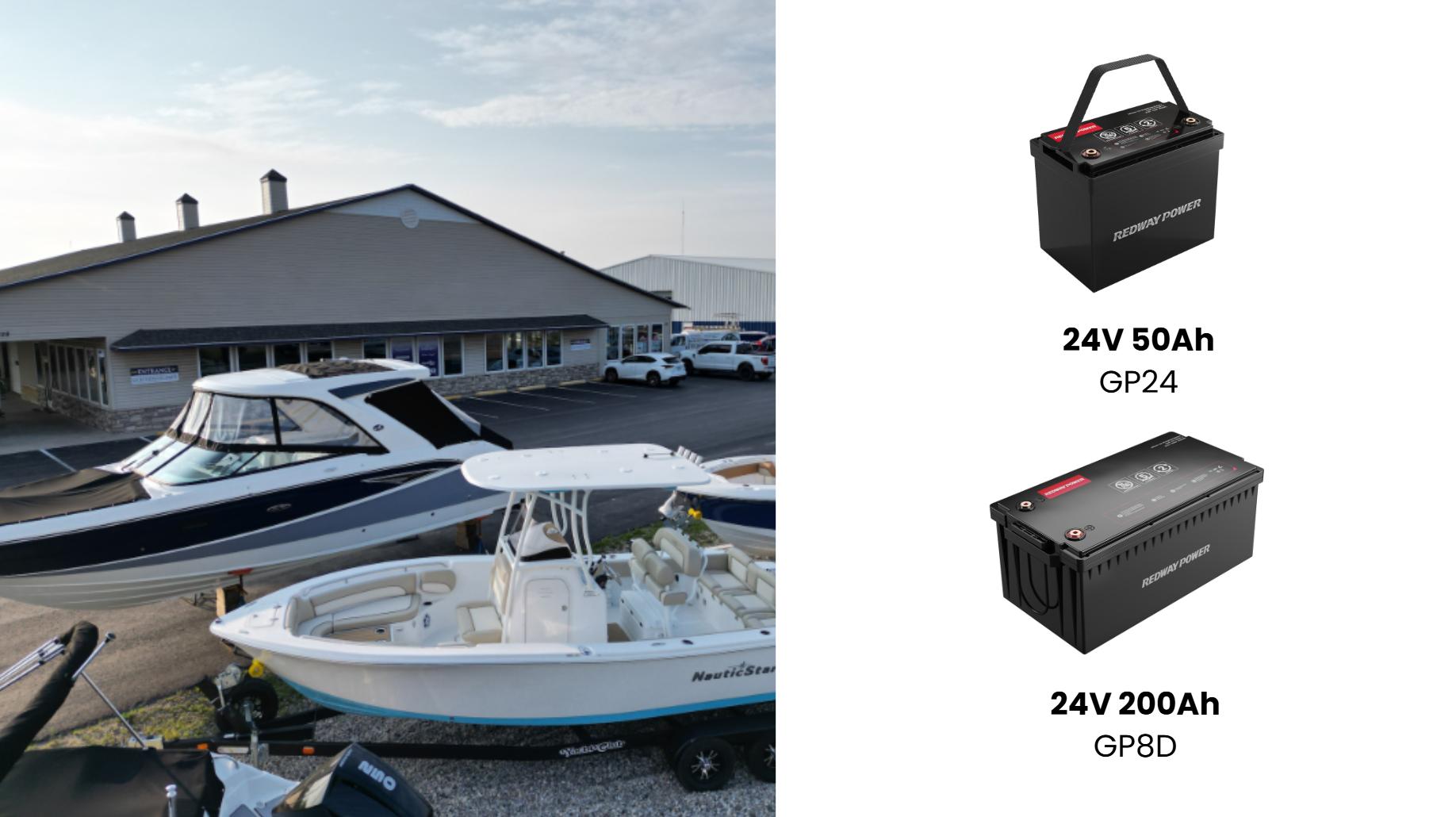A 24V lithium marine battery offers lightweight design, longer lifespan, faster charging, and higher energy density than lead-acid alternatives. It withstands deep discharges, operates efficiently in extreme temperatures, and requires minimal maintenance. These features make it ideal for powering trolling motors, navigation systems, and onboard electronics while reducing overall weight and improving boat performance.
How Does a 24V Lithium Battery Compare to Traditional Marine Batteries?
Lithium batteries provide 2-3x more usable capacity, 50% weight reduction, and 5-10x faster charging than lead-acid batteries. They maintain consistent voltage output during discharge cycles and last 8-10 years versus 2-4 years for AGM/gel counterparts. Unlike flooded batteries, lithium models operate at 95% efficiency with no risk of acid spills.
What Safety Features Do 24V Lithium Marine Batteries Include?
Premium lithium marine batteries integrate multi-layer protection:
– Thermal sensors preventing operation outside -4°F to 140°F
– Built-in battery management systems (BMS) monitoring cell balance
– Short-circuit and overcharge protection
– Automatic voltage cutoff during deep discharges
– Flame-retardant casing materials
Which Factors Determine a Lithium Marine Battery’s Lifespan?
Cycle life depends on:
– Depth of discharge (3,000+ cycles at 80% DoD vs 500 cycles for lead-acid)
– Charging practices (avoid sustained 100% charges)
– Operating temperature range
– Quality of BMS integration
– Vibration resistance in marine environments
Properly maintained lithium batteries typically outlast the boats they power.
How to Properly Install a 24V Lithium Battery System?
Installation requires:
1. Selecting marine-grade wiring (4-6 AWG for 100Ah+ systems)
2. Installing a lithium-compatible charger (14.4-14.6V absorption)
3. Using compression mounts to minimize vibration
4. Ensuring waterproof battery trays
5. Separating from fuel lines/engine heat
6. Implementing a master cutoff switch
Can You Mix Lithium and Lead-Acid Batteries Onboard?
Mixing chemistries risks:
– Improper charging profiles damaging lithium cells
– Voltage incompatibility with 24V systems
– Accelerated lead-acid degradation
For hybrid systems, use dedicated charge controllers and separate banks. Most experts recommend full conversion to lithium for optimal performance.
What Maintenance Does a 24V Lithium Marine Battery Require?
Maintenance includes:
– Monthly voltage checks (keep above 12.8V)
– Terminal cleaning every 6 months
– Annual capacity testing
– Firmware updates for smart BMS units
– Storage at 50% charge in climate-controlled spaces
No equalization charges or water refilling needed.
Expert Views
“Modern 24V lithium systems revolutionize marine power management. Our testing shows 40% efficiency gains in trolling motor runtime compared to AGM setups. The real breakthrough is adaptive BMS technology – it automatically adjusts charge rates based on engine alternator output and solar input.”
– Marine Systems Engineer, Redway Power Solutions
Conclusion
24V lithium marine batteries deliver unmatched performance through advanced lithium iron phosphate (LiFePO4) chemistry. With proper installation and care, boaters gain reliable power for electronics, propulsion, and emergency systems while eliminating maintenance hassles. Their higher upfront cost proves economical over time through decade-long service life and reduced replacement frequency.
FAQs
Q: How long can a 24V lithium battery power a fish finder?
A: A 100Ah battery runs a 1A fish finder for ~90 hours continuously. Actual runtime depends on GPS usage and screen brightness.
Q: Are lithium marine batteries safe in saltwater environments?
A: Yes – premium models feature IP67 waterproof ratings and corrosion-resistant terminals specifically for saltwater exposure.
Q: Can I recharge lithium batteries with solar panels?
A: Absolutely. Use a 24V MPPT solar charge controller (30-50A recommended) for optimal efficiency. Lithium’s low internal resistance enables faster solar charging than lead-acid.




